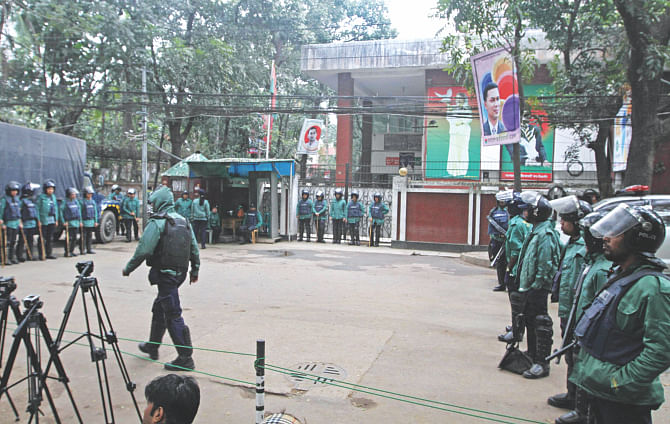Democracy protects rights of political minorities
Democracy protects rights of political minorities
Says Frederic Grare, director of South Asia programme at Carnegie Endowment for International Peace, about the current intolerant violent political situation in Bangladesh, while addressing a BIPSS discussion

A national dialogue of politicians and civil society representatives must begin to help resolve the ongoing violent political deadlock in Bangladesh, Frederic Grare, director of a Washington-based global think tank, told a discussion in the capital yesterday.
“Democracy is much more than elections. It is respect to the rights of the political minority,” added the keynote speaker on "State of Democracy and Governance in South Asia".
But democracy cannot be reduced to mere elections either, he said, it also requires rule of law and control over corruption and extremism as the fundamental tools of democracy.
Political problems cannot be resolved with non-political means and extremism cannot be resolved with mere good governance, he said in the general context of South Asia
The subcontinent does not really perform well in terms of democracy and human rights, added the director of the South Asia programme of Carnegie Endowment for International Peace, scheduled to stay for a week.
Maj Gen (retd) ANM Muniruzzaman, president of Bangladesh Institute of Peace and Security Studies (BIPSS) which organised the discussion at a Gulshan hotel, said Bangladesh was presently undergoing a very critical juncture in politics, facing some of the greatest challenges to democracy and good governance.
The political process has been fragmented, leading to the early stages of a conflictual situation and providing a political fault line for the reemergence of extremism, he said.
“The politicians have reasons to worry, when the bureaucrats and state machineries start speaking the language of politics,” said the security analyst.
Democratic and other state institutions are being subjected to systematic destruction and erosion, paving the way for a disaster with long lasting effects, he said.